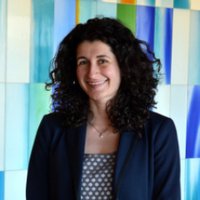
David Fischer, MD
@dbfisch
Consciousness doctor, neurointensivist and director of the @RECOVER_program, dedicated to consciousness recovery after brain injury @PennMedicine.
ID: 64583758
https://www.med.upenn.edu/recover-program/ 11-08-2009 01:30:54
153 Tweet
853 Takipçi
46 Takip Edilen

Studies show that some patients who appear unresponsive after severe brain injury can follow commands covertly, as detected by advanced fMRI and EEG. ➡️10 lessons we learned when implementing these tools in a clinical setting Brian Edlow neurology.org/doi/10.1212/CP…

Clinical Implementation of fMRI & EEG to Detect Cognitive Motor Dissociation: Lessons we learned in translating neurotechnologies for clinical consciousness assessment, with Brian Edlow & team MGH Neurology Yelena G. Bodien @DBFisch in Neurology: Clinical Practice — neurology.org/doi/10.1212/CP…

This is cool. RECOVER. A multidisciplinary team at University of Pennsylvania Neurology that provides neuroprognostication for DoC pts — and also provides F/U care — allowing for more informed judgements #curingcoma neurology.org/doi/10.1212/CP…

Do you have experience with fMRI analysis? Interested in consciousness and helping patients in coma? Consider applying for this position to join our RECOVER Program team at Penn Medicine. Please reach out with ?'s and spread the word! wd1.myworkdaysite.com/en-US/recruiti…


Privileged to collaborate with this international group of experts on disorders of consciousness at a recent conference. A resulting paper, led by Michael Young in The Lancet Neurology, outlines an ethical approach to covert consciousness assessment. thelancet.com/journals/laneu…

What's the impact of RECOVER Program, a specialized neuroprognostication service, on provider attitudes? This survey study in Resuscitation Plus suggests providers are satisfied, think it's better than the usual, and makes neurology more useful. More at #AANAM doi.org/10.1016/j.resp…
